Why Is the American Library Association Whitewashing the History of Ukrainian Nazis?
In honoring a book depicting Ukrainian volunteers in the Waffen SS as heroes and patriots, the group reveals historical ignorance—or indifference to antisemitism.
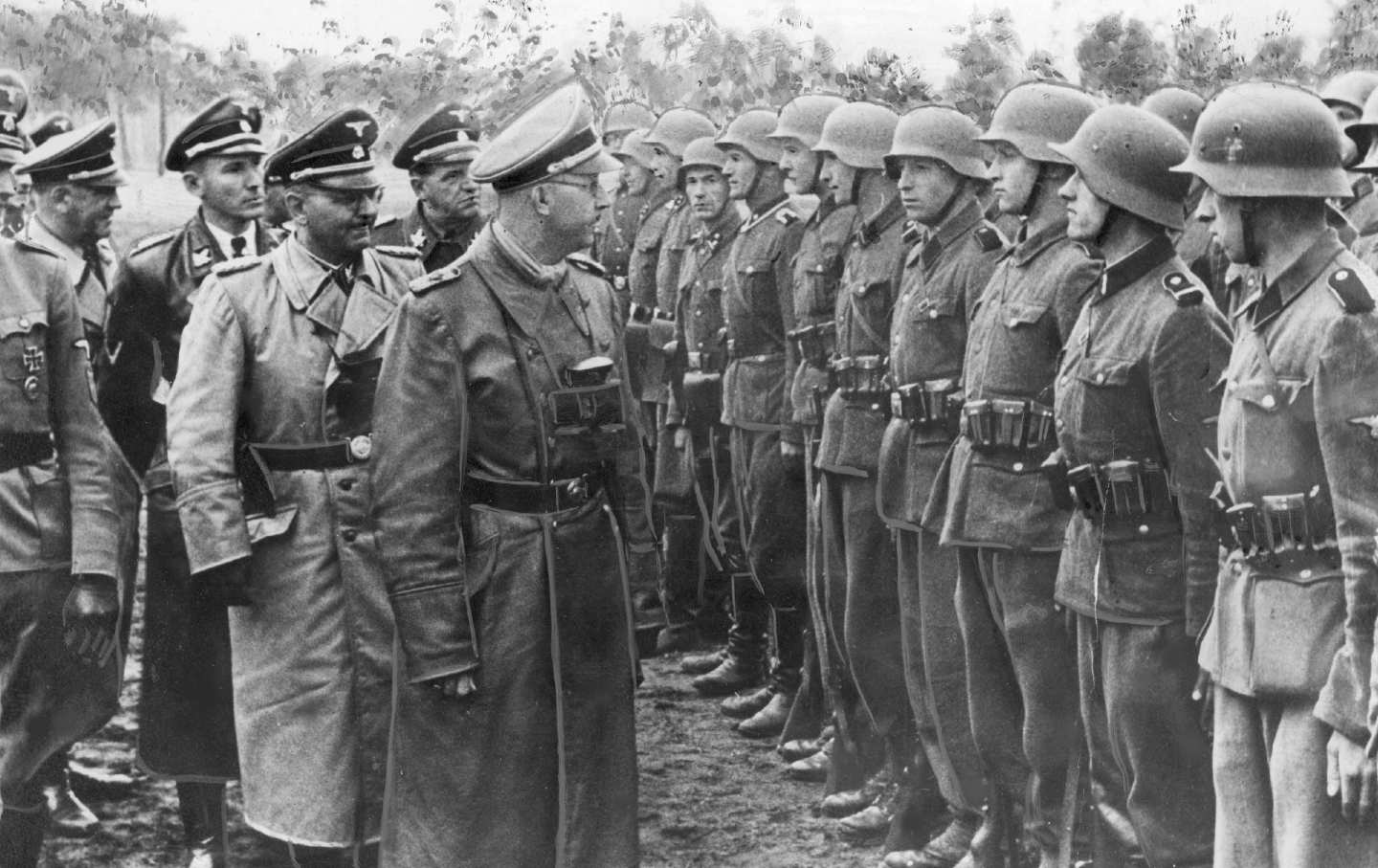
Editors note: Shortly after publishing this article, the American Library Association removed Enemy Archives from its Best Historical Materials List 2023 and issued this statement: “The committee will be reviewing the award manual and procedures. We apologize for the harm caused by the work’s initial inclusion on the list.”
America’s largest library association, which annually hands out prestigious literary prizes such as the John Newbery Medal for children’s literature, the Caldecott Medal for picture books for children, the Stonewall Award for LBGTQ+ books for young readers, and the Coretta Scott King award for African American authors and illustrators, has recently honored two authors with a track record of whitewashing Nazi collaborators.
This January, the American Library Association (ALA) published a list of Best Historical Materials for 2023, which includes Enemy Archives: Soviet Counterinsurgency Operations and the Ukrainian Nationalist Movement—Selections from the Secret Police Archives.
This compendium of Soviet documents was edited by Volodymyr Viatrovych and Lubomyr Luciuk. Viatrovych, who is currently a deputy in the Ukrainian parliament, is notorious for drafting laws glorifying Ukrainian Nazi collaborators and Holocaust perpetrators. He’s been condemned by Jewish organizations as well as the governments of Poland and Israel. Luciuk, a professor in Canada’s elite military college, has defended a Third Reich division accused of war crimes.
The ALA’s influence reaches beyond awards: The world’s largest library association plays a key role in lobbying Congress for federal funding, and runs Booklist magazine, which covers soon-to-be published titles; receiving a Booklist review is an important step on the road to successful publication.
This isn’t the ALA’s first scandal over skewing historical narratives. A 2022 panel musing about the legitimacy of books about Holocaust denial necessitated an apology clarifying that Holocaust denial is, indeed, a means of disinformation and therefore not appropriate. In 2019, the group partnered with the US Holocaust Memorial Museum on a traveling exhibit for libraries.
Yet the selection of Enemy Archives places any commitment to avoid both-sides-ing WWII in doubt. One of the book’s editors has described soldiers from an SS division as “war victims,” while the other demanded that the Canadian parliament apologize for calling an SS veteran a Nazi.
In 2015, Kyiv triggered international headlines after passing laws declaring two World War II–era paramilitary groups—the Organization of Ukrainian Nationalists (OUN) and its offshoot the Ukrainian Insurgent Army (UPA)—to be Ukrainian national heroes and making it illegal to deny that heroism. The OUN collaborated with the Nazis in massacring tens of thousands of Jews, while the UPA liquidated thousands of Jews and 70,000–100,000 Poles.
The laws institutionalizing the OUN/UPA cult across Ukraine were the brainchild of Volodymyr Viatrovych, who at the time headed the Ukrainian Institute of National Memory (UINM), a department in the federal government.
The legislation was only the beginning: Viatrovych’s systematic campaign transforming killers of Jews into freedom fighters became so endemic he was mentioned by name in the annual report on global antisemitism issued by Israel. The 2015 laws and the UINM’s whitewashing were condemned by the US Holocaust Memorial Museum (USHMM). Articles such as “How Ukraine’s New Memory Commissar Is Controlling the Nation’s Past” in The Nation and “The Historian Whitewashing Ukraine’s Past” in Foreign Policy exposed a pattern of distortion. In 2017, Viatrovych was barred from entering Poland.
When Israeli President Reuven Rivlin called out Ukraine’s Holocaust revisionism during a 2018 visit, Viatrovych attacked him for “spreading the Soviet myth about the OUN’s participation in the Holocaust,” (the OUN’s involvement is an established historical fact). And when Ukrainian Jewish leader Eduard Dolinsky warned of the institute’s excesses, Viatrovych accused him of claiming antisemitism in order to profit. These smears echoed long-standing racist tropes of Jews carrying water for the Kremlin and concocting false acts of antisemitism to make money.
Viatrovych, who was fired as the head of UINM by President Volodymyr Zelensky in 2019, is now a deputy in the Ukrainian parliament.
Viatrovych’s coeditor, Luciuk, is a professor at the Royal Military College of Canada—the country’s equivalent of West Point. Last year, he published an edited excerpt from Enemy Archives in the National Post, a major Canadian paper. The article described the OUN as having been maligned by the USSR, which “routinely portrayed members of this Ukrainian nationalist movement as war criminals, Nazi collaborators, fascists and so on, a trope regurgitated regularly by the Russian Federation.”
The piece made it sound as if the OUN’s collaboration with the Third Reich was Soviet propaganda, instead of established historical fact. The Simon Wiesenthal Center (SWC) denounced the National Post for providing “space to Lubomyr Luciuk who continues to spread Holocaust distortion and disinformation.”
In responding to SWC, the National Post’s editor in chief admitted that the article “included a paragraph disputing the view that the Second World War era Organization of Ukrainian Nationalists were Nazi collaborators. However, we recognize that this collaboration has been established by prior scholarship.”
Luciuk has also vociferously defended the 14th Waffen Grenadier Division of the SS (1st Galician), commonly known as SS Galizien. This was a formation in the SS—the paramilitary arm of the Nazi Party and the chief perpetrator of the Holocaust.
Popular
“swipe left below to view more authors”Swipe →SS Galizien was armed, trained, and commanded by German SS officers. Its soldiers, who were overwhelmingly volunteers, swore an oath to Hitler. A video clip from USHMM archives shows the German high command staging elaborate, Nuremberg-style enlistment ceremonies with beaming recruits marching under SS banners. In 1944, the division was visited by SS head Heinrich Himmler—the mastermind of the Holocaust—who praised the fighters’ willingness to slaughter Poles. Indeed, prior to Himmler’s visit, SS Galizien subunits distinguished themselves by burning 500–1,000 Polish villagers alive.
Luciuk has written numerous defenses of SS Galizien, stating that “they weren’t pro-Nazi, they weren’t anti-Semitic and they didn’t engage in war crimes.”
Last fall, on the occasion of a visit by Zelensky, the speaker of the Canadian Parliament recognized SS Galizien veteran Yaroslav Hunka, who was present, prompting a standing ovation by parliamentarians. The ensuing scandal led to the speaker’s resignation, an apology from Prime Minister Justin Trudeau, and condemnation from Canadian Jewish organizations.
Luciuk disagreed. The professor employed by the Canadian military—which lost over 45,000 men in the war against Nazi Germany—claimed that “members of Parliament joined an execrable chorus of zealots and prats who gibbeted Hunka for someone he never was —‘a former Nazi.’ I’d say the House owes our fellow Canadian, and an innocent man, a public apology.”
(It must again be stated that the SS was literally the military wing of the Nazi Party.)
The annual Best Historical Materials list is published by the Reference and User Service Association, an ALA division. The 2023 list contains 12 titles, each with a brief review by a scholar. The Enemy Archives review is signed by University of Southern Mississippi professor Jennifer Brannock. Tellingly, her review states that the documents in the book “cover topics such as the Soviet claim that the Ukrainian underground promoted fascism and collaborated with the Nazis.”
More from Lev Golinkin

See No Evil? Canadian Government Media Blurs Out the Swastika on a Ukrainian Soldier. See No Evil? Canadian Government Media Blurs Out the Swastika on a Ukrainian Soldier.
Canada’s shameful refusal to acknowledge its support of the far right yesterday and today.
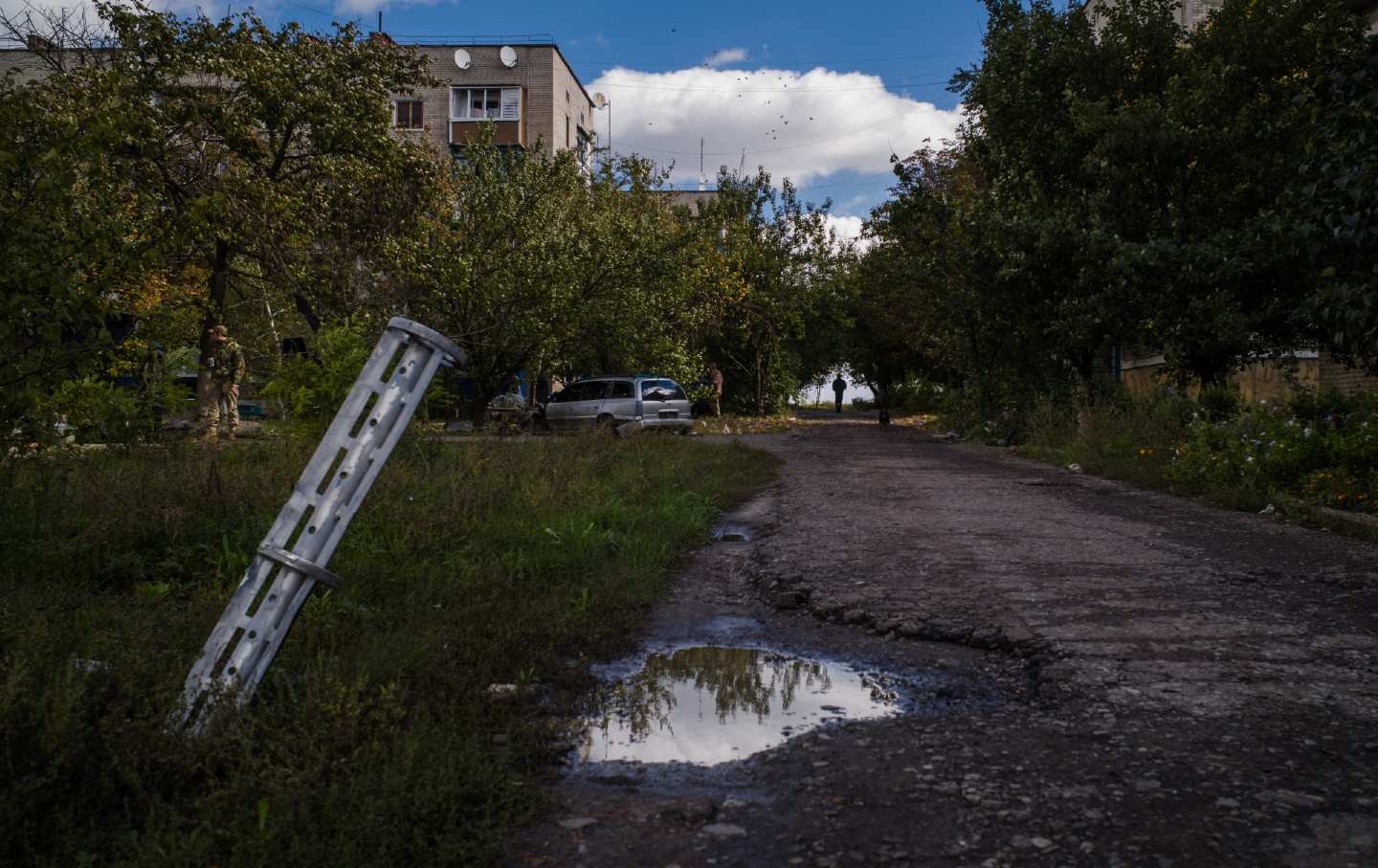
All Sides in the Ukraine War Have Been Using Cluster Bombs Since 2014 All Sides in the Ukraine War Have Been Using Cluster Bombs Since 2014
The nihilism of the battlefield is reflected in hypocritical statements churned out by Kyiv and Moscow.
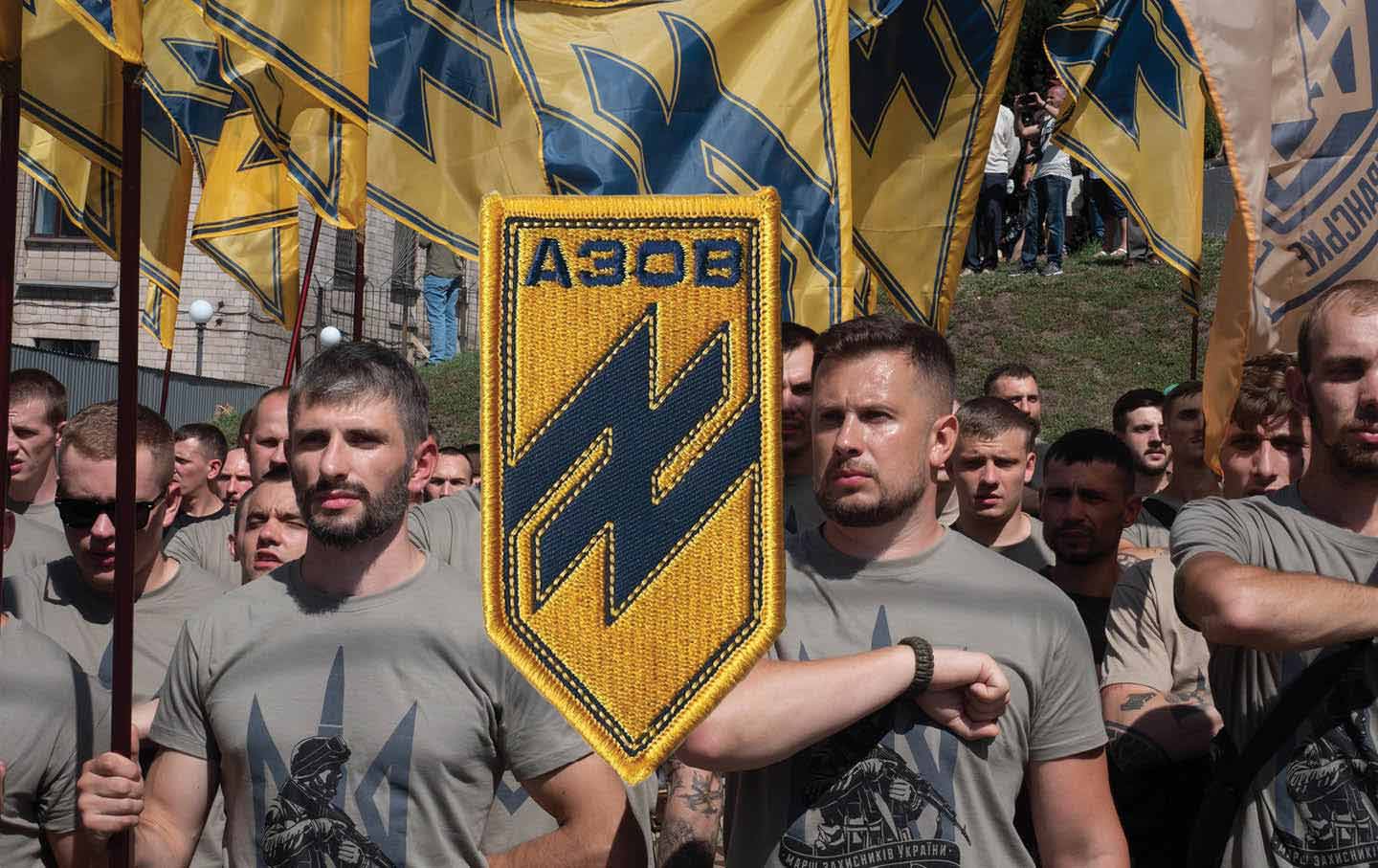
The Western Media Is Whitewashing the Azov Battalion The Western Media Is Whitewashing the Azov Battalion
Before Russia invaded Ukraine, these fighters were neo-Nazis. They still are.
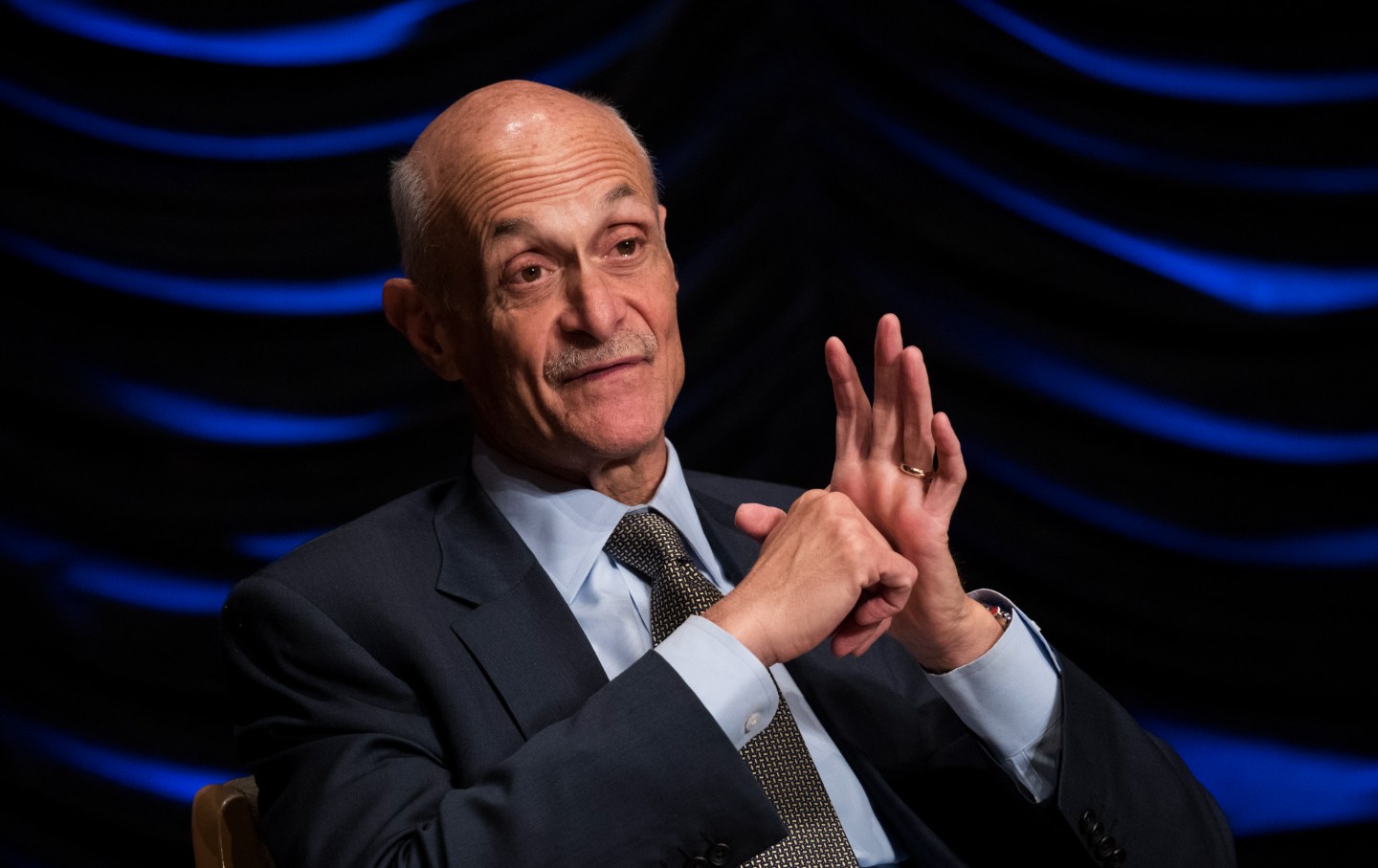
Another Terrible Choice for Biden’s “Disinformation Board” Another Terrible Choice for Biden’s “Disinformation Board”
Michael Chertoff’s experience detaining Muslim Americans, justifying CIA torture, and helping to draft the Patriot Act make him an all-too-appropriate choice to advise this Orwelli...
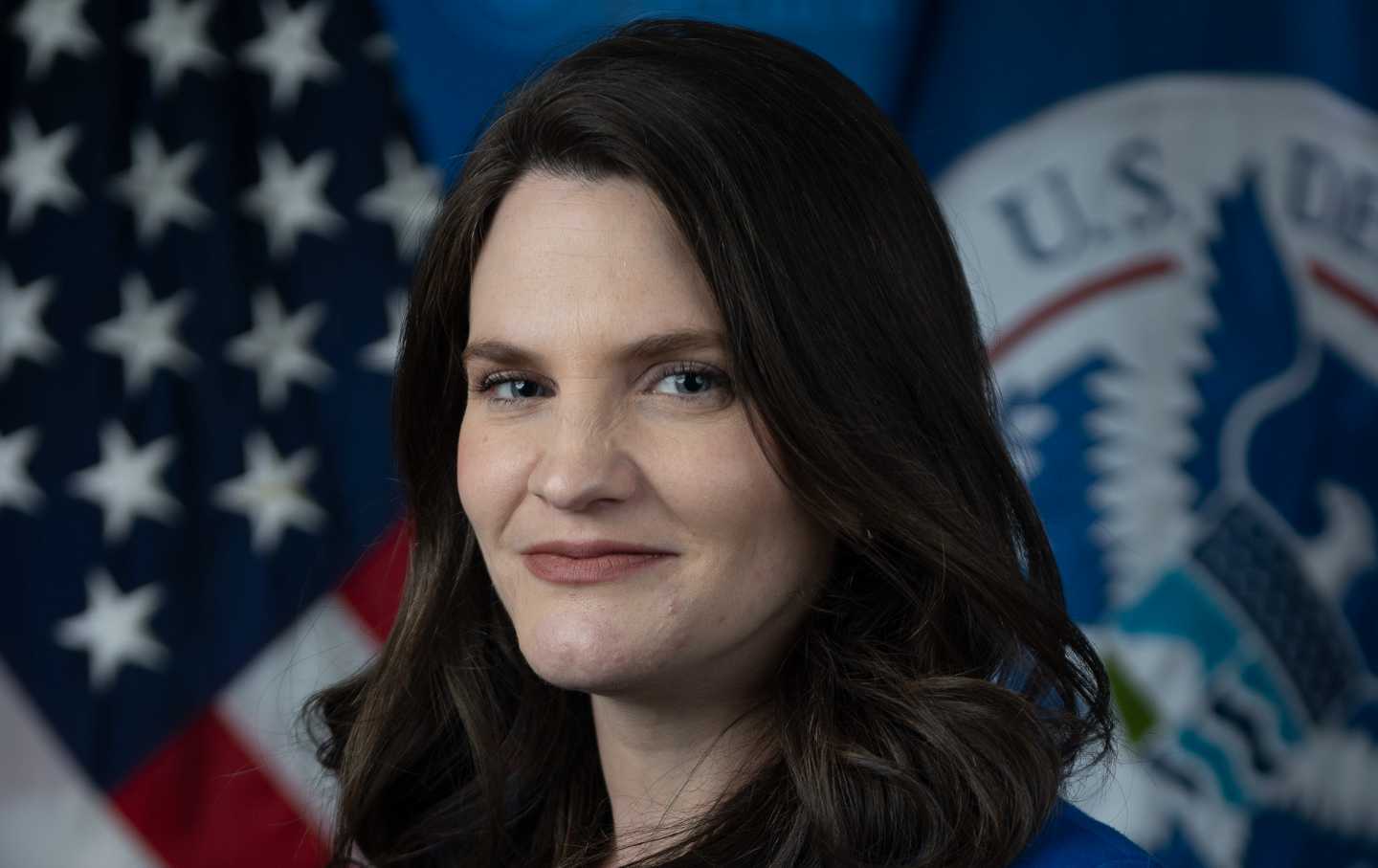
Meet the Head of Biden’s New “Disinformation Governing Board” Meet the Head of Biden’s New “Disinformation Governing Board”
Nina Jankowicz is a veteran information warrior. But her “experience” working with StopFake should have set off alarm bells.
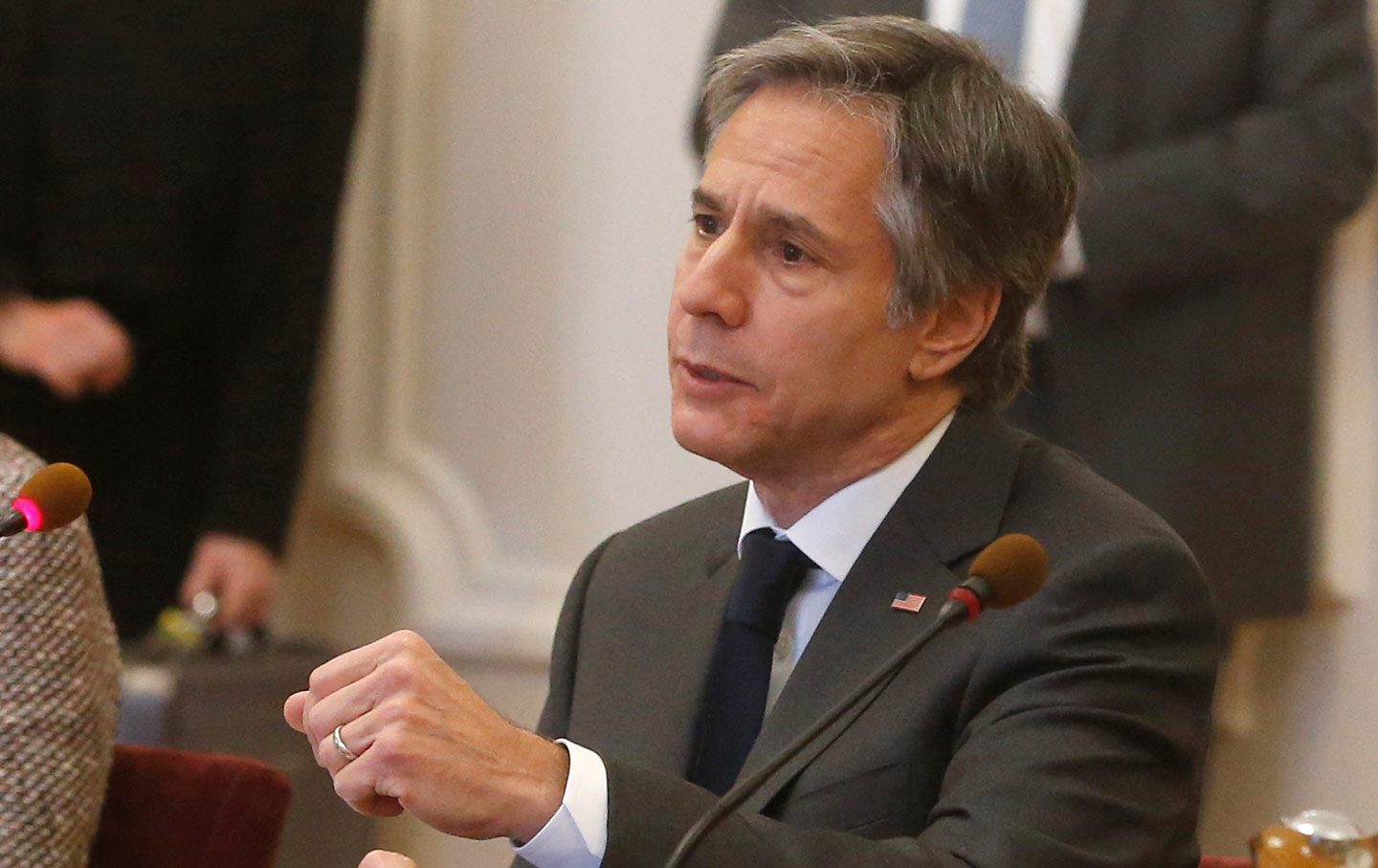
Secretary Blinken Faces a Big Test in Ukraine, Where Nazis and Their Sympathizers Are Glorified Secretary Blinken Faces a Big Test in Ukraine, Where Nazis and Their Sympathizers Are Glorified
One week after hundreds marched in Kyiv to honor a Nazi SS division, the US secretary of state has a chance to stand up for Holocaust survivors.


